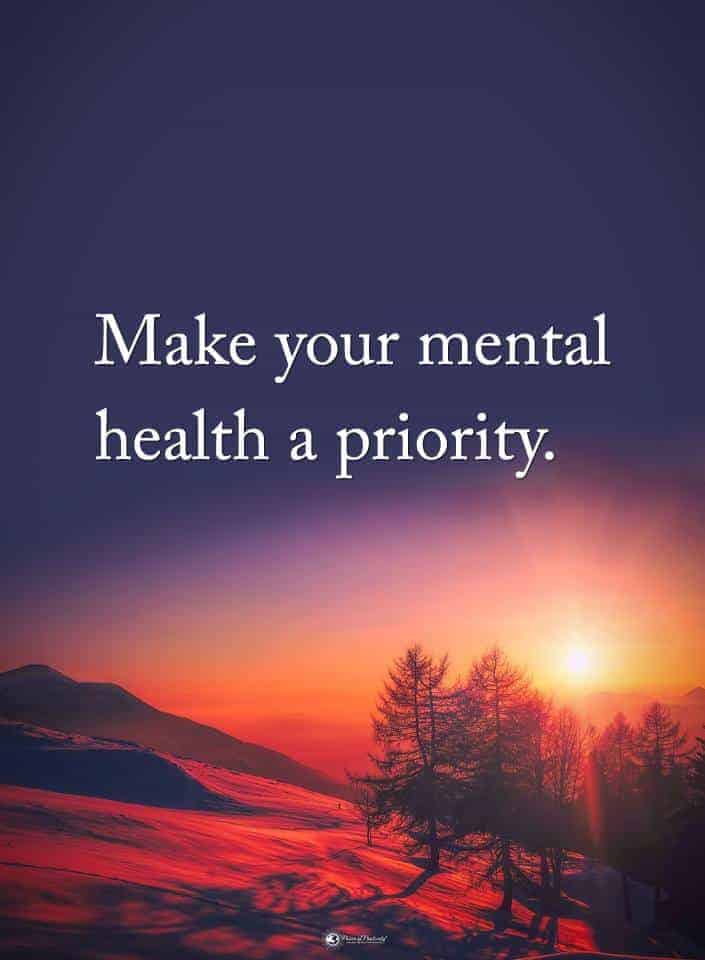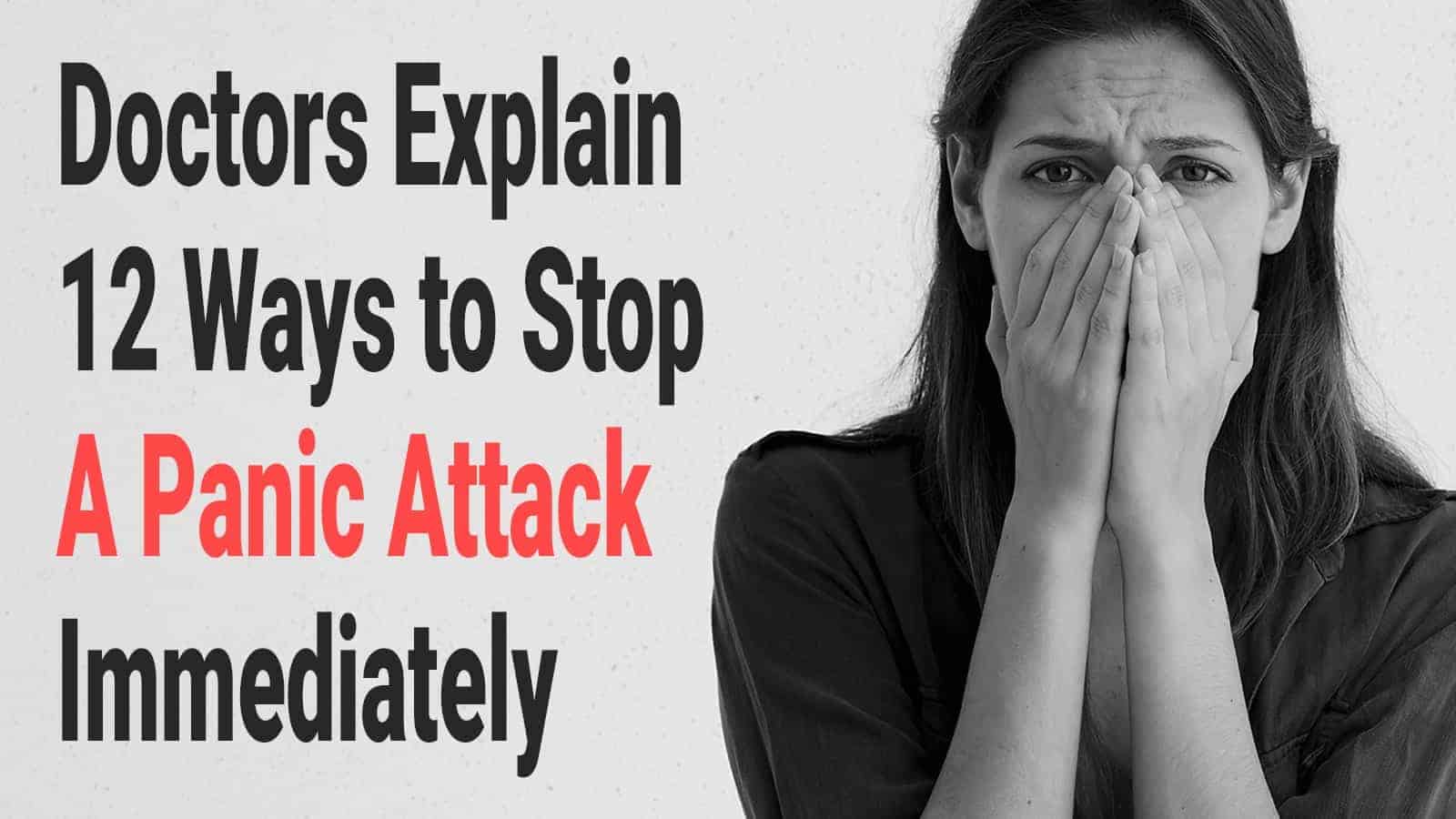A panic attack could strike anyone at any time. We’ve all felt the anxiety associated with not knowing the effects or outcome of situations beyond our control. How will that job presentation, upcoming surgery, or potentially fateful meeting go?
Although most people seem to survive with no worse than sweaty palms and nervousness, there are those for whom such situations are unbearable. The result of overwhelming mental and emotional pressure may be a panic attack. If you have ever suffered such an episode, you know it is terrifyingly real.
Thankfully, there are ways of dealing with these debilitating episodes. Panic attacks are treatable; most people can overcome them with the right therapy. Some professionals can offer choices for dealing with any personality and trying conditions.
Recognize the Symptoms of a Panic Attack
A panic attack is a sudden and intense surge of anxiety or fear accompanied by physical symptoms. It can happen quickly and be so overwhelming that many people have thought they were having a heart attack or stroke. Attacks include both emotional and physical symptoms, such as the following:
- Sweating
- Trembling, shaking
- Nausea
- Increased heart rate, palpitations, or chest pain
- Shortness of breath or feelings of being smothered
- Choking sensations
- Feeling lightheaded or dizzy
- Hot or cold flashes
Knowing the most common symptoms can help you proactively prevent full-blown attacks. These episodes are not fatal, but they can have a crippling effect if not brought under control. These attacks can become self-perpetuating, especially if the reasons for the occurrence are not readily known. There are ways of stopping a panic attack in its tracks. Here are 12 ways to stop symptoms from escalating.
How to Stop Panic Attack Symptoms.

1. Recognition and Acceptance
Especially if you’ve experienced an attack in the past, you should recognize the symptoms when they reoccur. Remind yourself that this is a temporary state of anxiety and that nothing dangerous will happen to you. Clearing your mind of those feelings of doom will help you to proceed to the next steps in dealing with an attack.
2. Tell People.
Letting a few trusted colleagues and friends know about your problems may be helpful. They may be able to assist you in separating yourself to a quiet place and reassuring you that this will pass. Faithful friends and family can be invaluable for lessening the stress and length of an attack.
3. Learn Your Panic Attack Triggers.
Attacks can sometimes be triggered repeatedly by the same things, such as enclosed or crowded places, financial issues, or impending deadlines. Once triggers are identified, methods can be established for adjusting and dealing with them.
All kinds of issues may trigger anxiety and panic, including health issues or reactions to different types of medication. You may consult a professional to identify your anxiety nemeses or examine ongoing issues and your reactions.
4. Deep Breathing.
Controlled breathing is recognized as one of the significant stress relief exercises. During a panic attack, you may tend to hyperventilate. Breathe slowly and deeply through your nose and then exhale slowly through your mouth. Continue slow, deep breathing until you begin to feel more relaxed.
Learn exactly what it is that is causing you to feel short of breath during an episode of panic. Did you forget to exhale? Are you breathing too quickly? Research different breathing exercises that can benefit oxygen flow and clear thinking.
5. Limit Immediate Stimuli.
You may need to leave a busy room or find a more quiet corner with a solid wall to lean on. Try to remove yourself as far as possible from the sights and sounds that will continue aggravating the issue.
Once you have found a more peaceful spot, close your eyes to remove yourself from the activity around you further. Concentrate on breathing until you can take control of your thoughts.
6. Practice Mindfulness.
Don’t allow yourself to begin to feel detached from yourself or your location. Instead, ground yourself in physical sensations such as the feel of the wall you’re leaning on or the arms of the chair or tabletop. Move your feet on the floor and think about the texture of the surface. Is it tile or carpet?
Think about things affecting your five senses. Not only what you touch, but try to identify several different sounds such as music, footsteps, or silverware tapping. Try to identify different smells. Look about the area and identify objects such as interesting paintings, windows, or furnishings if you can.
Various studies and groups have confirmed the benefits of mindfulness. This is an important area to explore to find the best method to keep you grounded and end the symptoms of anxiety you may experience. Your beliefs may be a guide for choosing the best mindfulness technique.
7. Focus.
Focusing on an object of interest or importance can help to stop panic attack symptoms. Some people may carry a photo or other object to achieve this purpose. Or find an exciting piece of art or design to dissect mentally. Think about how the object feels if you are holding it in your hand. Or think about the design and who could have made it.
8. Muscle relaxation.
Of course, it is not unusual to tense your muscles during an anxiety attack. As you sit quietly, begin relaxing your muscles one at a time. Let your hands unclinch, your stomach muscles relax, etc., until you have relaxed your entire body.
Again, there are several methods for relaxing your muscles. Don’t get too complicated, but explore the possibilities. This can be one way of stopping stress and anxiety before it becomes out of control.
9. Light exercise.
Although it may seem contradictory, for some, the perfect remedy for cutting off a potential attack may be to take a short walk or swim. Exercising can release endorphins which will help you relax both physically and mentally. However, if you are having trouble breathing, you must address that issue before exerting yourself.
10. Repeat a mantra or prayer.
A comforting phrase or prayer can be a valuable asset when you begin to feel the onset of a panic attack. A calming or reassuring phrase can give you something to hold onto as you struggle to stop panic attack symptoms from accelerating.
If your mind has just gone blank, don’t worry. There are lists of encouraging or soothing phrases you can repeat to yourself while working to regain control. Or you may remember a favorite saying of a friend or family member that you can borrow to bring quick comfort and relief to your troubled emotions.
11. Lavender.
Lavender is well known for its soothing, relaxing effects. If you have a history of uncontrolled panic, consider keeping lavender oil close by in case of an attack. Rub the oil on your forearms and breathe in the calming scent, or try a cup of chamomile and lavender tea.
Some studies indicate that lavender may be as effective as prescription medicines for some stress-related issues. Women seem to be especially affected by this natural herbal treatment option.
12. Medication.
You may consider medication if no combination of the above suggestions completely relieves your symptoms. The most recommended medication for anxiety and panic will be a benzodiazepine, some of which have been approved by the FDA. However, these medications require a diagnosis of a panic disorder from your doctor.
Preventing a Panic Attack
Remember the old saying, “an ounce of prevention is worth a pound of cure.” There may be simple changes in your lifestyle that can lessen your tendency to become overanxious. Cognitive behavioral therapy (CBT) may be beneficial. Regular quiet meditation may be helpful, along with herbal remedies.
Adopting a more healthful diet and getting enough sleep will also help keep your mind and body ready to deal with whatever comes. Stay hydrated and avoid too much caffeine or alcohol. Regular aerobic exercise is also important to your overall health and is a great stress reliever.
Keeping a journal may be another way to help evaluate your symptoms and determine the best way to stop anxiety from controlling your responses and leading you down the road to panic. Write down the things that have caused you to feel stressed and anxious over time. Reading these entries may help you identify external triggers and internal reactions that must be dealt with.

Final Thoughts on Dealing With a Panic Attack
There are many options for stopping the progression of a panic attack. You may have to work a bit at finding the combination that will work best for you. It is possible to stop panic attack symptoms and become the master of your reactions to life’s unexpected or uncomfortable situations.
You can learn not only what to do, but what not to do, to overcome debilitating panic attacks. There may also be other immediate responses that may work for you. And finally, although natural remedies are always best, take medication if your symptoms are extreme and your doctor recommends it.

















